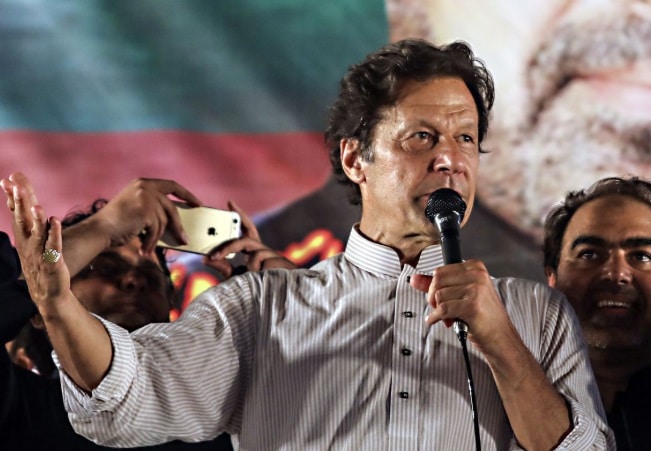“Saudi Arabia might not end Pakistan’s extreme economic woes, but it can make a significant contribution”
Originally written for Arab News Pakistan:
After its historic win in the polls on July 25, the Imran Khan-led Pakistan Tehreek-e-Insaf’s prime focus has been on gathering the required numbers within the national and provincial assemblies to form governments. As the independent members and smaller parties join hands with the PTI, it looks like Khan will secure a majority in Parliament and become the Prime Minister of Pakistan. This will effectively make him the top decision-maker in the country. In the aftermath of his electoral victory, different states within the Middle East have tried to engage with Khan, so it will be interesting to see his approach toward the region.
As Khan delivered his victory speech a day after the polls closed, congratulatory messages started to pour in. Only two Middle Eastern states were discussed during the speech: Saudi Arabia was mentioned as a special friend that has stood with Pakistan in every critical time, while the importance of ties with Iran, Pakistan’s western neighbor, was also acknowledged. Following up on Khan’s speech, the Saudi envoy was the first foreign diplomat to personally greet Khan and convey felicitations from King Salman and Crown Prince Mohammed bin Salman, while also praising Khan’s speech as “comprehensive and positive”.
Next to reach out to Khan was the envoy of the UAE, who discussed with him political matters and the state of bilateral ties. This shows that all the regional actors attach special significance to Pakistan and want to engage with Khan. It also highlights that all these countries perceive the political change in Pakistan as positive and consider Khan as someone they could work with.
The Middle Eastern players who were relatively late to react were Turkey and Qatar. Turkish President Recep Tayyip Erdoğan called to congratulate Khan on August 1, roughly a week after the elections, while the Qatari Emir only contacted Khan two weeks after his victory. Also interesting was the general tone of Turkish and Qatari news outlets, who focused more on alleged irregularities during the election and gave prominence to the rigging claims made by the Pakistani opposition, while projecting Khan as the military’s choice for the post. This essentially negative portrayal of Khan’s political success is understandable if we revisit the very close relationship that has remained between the leaderships of these two countries with former Pakistani Prime Minister Nawaz Sharif.
Since Khan has been mired in political jockeying to get the required numbers in Parliament, there has been no specific policy statement toward the Middle East. His resolve to play a constructive role in the region’s politics was the only significant expression that gave away his outlook.
It’s the Economy
The most important factor that will determine Khan’s engagement with the Middle East might not be political but economic. Pakistan’s economy is in a dire state and Asad Umer, who is tipped to be the next Finance Minister, has suggested the country needs a bailout package of more than $12 billion. Approaching the International Monetary Fund for support comes with conditions that may put some restrictions on the social welfare agenda and reforms promised by the PTI, so the new government will try to reduce its dependence on the IMF as much as possible. The possible solution is to turn toward friends that have a history of lending Pakistan much-needed economic support.
Saudi Arabia seems to be the best possible choice in this regard. There have been reports that the Saudi-backed Islamic Development Bank is ready to offer $4 billion as a loan to Pakistan once the new government gets into office. This might not end Pakistan’s extreme economic woes, but it would be a significant contribution nonetheless.
This economic factor influences the new government’s Middle East policy. One hint of times to come came as Pakistan sided with Saudi Arabia in its diplomatic row with Canada.
The reimposition of US sanctions on Iran makes any improvement of the relationship with Tehran, particularly in the economic domain, less likely to happen. Additionally, the trust deficit that exists between the two countries, especially after the Kulbhushan Jadhav affair, might further impact any possible rapprochement.
The crucial factor in this regard will be how Khan interacts with Pakistan’s establishment and takes into account its strategic linkages with the Middle East.
The best outcome for Pakistan will be Khan and the military brass aligning their foreign policy and national security preferences vis-a-vis the Middle East, initiating a coherent, pragmatic and constructive relationship with Pakistan’s friends in the region.

